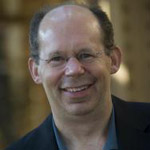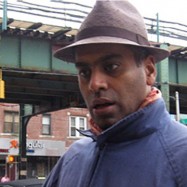There’s been a lot of handwringing of late over the murder rate in Chicago. Everyone points out that last year’s number, 506, exceeded the previous year’s count by 16 percent. But if you look at the numbers over the past ten years, they tend to fluctuate, the rate hovering at various altitudes, all of them too high to be acceptable. There are probably a number of factors that account for this past year’s increase — warmer weather, a burglary ring that stole over 500 guns from suburban gun shops and then sold them on the streets in Chicago, the splintering of the city’s African-American gangs — but these just explain the fluctuation not the “Why.”
Let’s be honest, the vast majority of shootings in Chicago — and other cities — occur in deeply impoverished neighborhoods, and so it seems clear that the violence in our cities is tied to the fading hope among the urban poor, especially the young. There’s much we need to do — from making guns harder to come by to investing in mentoring programs (which have a surprisingly high impact on reducing violent behavior) to grappling with the trauma of those who have been victims and witnesses of the violence (there’s a remarkable program in Philadelphia, Healing Hurt People, which is doing just that). But in the end, we need to figure out a way to assure that if you’re growing up, say, in a neighborhood like Englewood on Chicago’s South Side that you have a solid future. Or at least a chance at a solid future. At the moment, that’s not a given. For many, it doesn’t even feel like a possibility. I remember when we were filming The Interrupters we had the opportunity to interview Paul Collier, a British economist who has written about poverty and what he calls the ‘conflict trap’ in the developing world, how economically stagnating countries tend to be also struggling with internal violence. Here’s what Collier observed about inner-city Chicago:
The one thing that’s worse than stagnation is knowing that you’re stagnating when everybody else is prospering. And that produces anger, right? Anger and frustration, and you don’t know who to blame. Sometimes you blame the foreigner, sometimes you blame people within your own society… And I guess that’s the same here; that the pockets of society that haven’t participated in the great post-war era of prosperity, they feel anger, they don’t know whether to turn inwards for recrimination, or to turn outwards for the blame.
So, where to begin? I would suggest a robust, serious, concerted effort to widen the window of opportunity for those growing up in our country’s poorest communities. This is not a new argument. This is not a new problem — the poverty or the violence. So I guess the real question is: How do we make this a part of the public conversation? How do we get the rest of us to sit up and take notice? How in the end do we provide what Collier calls ‘credible hope’ for those without?
Alex Kotlowitz is an award-winning journalist best known for his book There Are No Children Here: The Story of Two Boys Growing Up in the Other America. Kotlowitz worked with documentary filmmaker Steve James to produce The Interrupters, a film inspired by Kotlowitz’s 2008 New York Times Magazine article “Blocking the Transmission of Violence.” Check out his recent This American Life segment comparing the effect of urban violence to the trauma of war.







